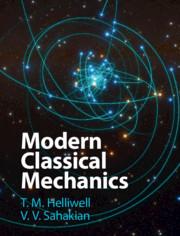Kepler's second law for classical orbits states that planets sweep out equal areas in equal times. Is
Question:
Kepler's second law for classical orbits states that planets sweep out equal areas in equal times. Is that still true in Schwarzschild spacetime, assuming orbital radii \(r>2 G M / c^{2}\) ?
(a) First suppose that "time" here means the coordinate time \(t\) in Schwarzschild coordinates.
(b) Then suppose instead that "time" means the proper time \(\tau\) of the planets themselves.
Fantastic news! We've Found the answer you've been seeking!
Step by Step Answer:
Related Book For 

Question Posted:





